Enzymes and Hormones play crucial roles in our bodies. Enzymes act like tiny helpers, speeding up chemical reactions that are essential for digestion, energy production, and repairing cells. Without enzymes, these processes would be slow or even impossible. On the other hand, hormones are like messengers that regulate various bodily functions, such as growth, metabolism, and mood. They ensure different body parts work together harmoniously. In simpler terms, enzymes help with tasks inside cells, while hormones manage communication between cells, both vital for our overall health and well-being.
Enzymes and Hormones
Both enzymes and hormones are very important for both plants and animals. Enzymes facilitate chemical reactions in the body, while hormones act as messengers that regulate and coordinate various bodily functions. Both enzymes and hormones are essential for the proper functioning of living organisms.
What are Enzymes?
Enzymes are biological molecules that function as catalysts to facilitate and accelerate chemical reactions in living organisms. They are highly specific and work on particular substrates, converting them into products without being consumed or altered in the process. Enzymes play a vital role in various physiological processes, including digestion, metabolism, and cellular functions. They work by lowering the activation energy required for a chemical reaction to occur, making the reaction happen more quickly and efficiently than it would without the enzyme. Enzymes are essential for the proper functioning of cells and are involved in almost every biochemical process that occurs within the body.
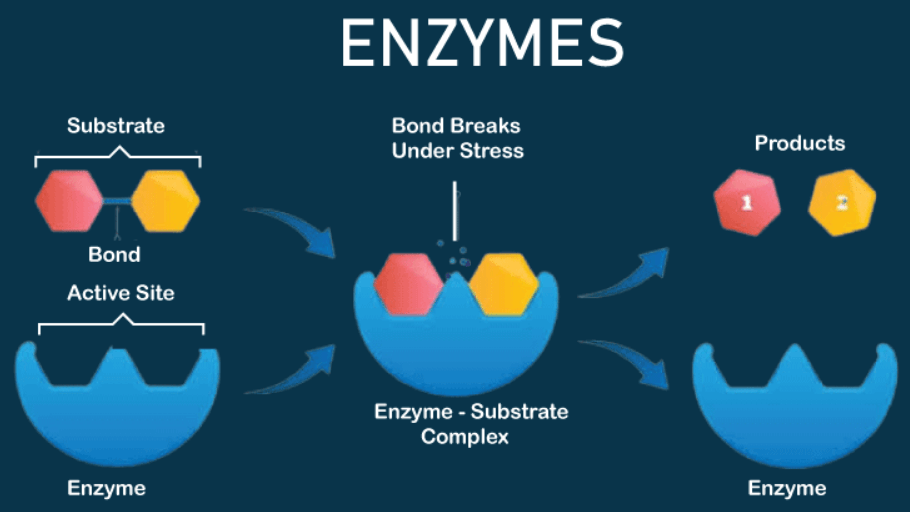
What are Hormones?
Hormones are chemical messengers produced by glands in the endocrine system. These molecules are released into the bloodstream and travel to target cells or organs in distant parts of the body, where they regulate various physiological processes and maintain homeostasis. Hormones play a crucial role in controlling functions such as growth, metabolism, reproduction, and mood.
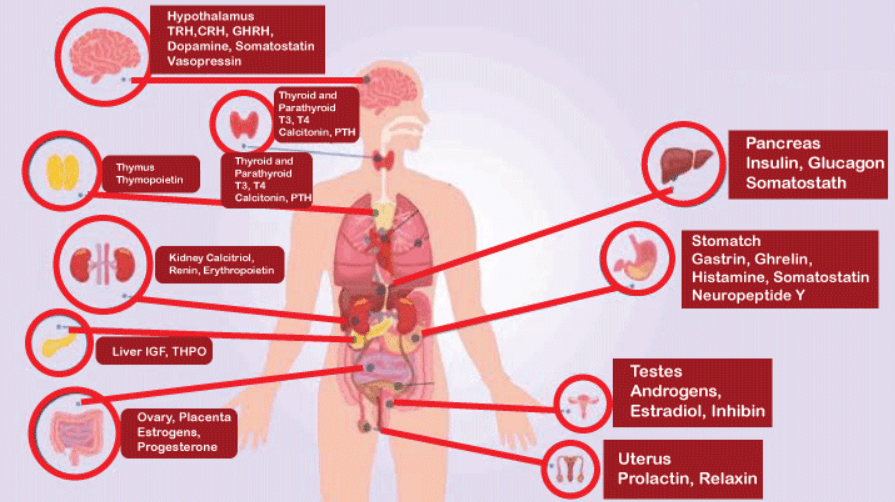
Different hormones have specific functions and target different organs or tissues. For example, insulin, produced by the pancreas, regulates blood sugar levels. Thyroid hormones, produced by the thyroid gland, control metabolism. Estrogen and testosterone, which are produced by the ovaries and testes respectively, influence sexual development and reproductive functions.
Overall, hormones are essential for coordinating and regulating numerous bodily functions, ensuring that different parts of the body work together harmoniously to maintain overall health and well-being.
Difference Between Enzymes and Hormones
| Difference Between Enzymes and Hormones | ||
| Aspects | Enzymes | Hormones |
| Definition | Enzymes are biological molecules that act as catalysts. | Hormones are chemical messengers that regulate various body functions. |
| Function | The main function of the enzymes is to speed up the chemical reactions. | The main function of the hormones is to regulate physiological activities in the body. |
| Nature | Proteins or RNA molecules. | Proteins or steroids. |
| Location | The enzymes work inside the cells. | The hormones are secreted by the glands into the bloodstream. |
| Target | Enzymes target specific substrates. | The hormones target cells or organs. |
| Action | The enzymes facilitate chemical reactions. | Hormones influence target cells by binding to specific receptors. |
| Reusability | Enzymes are reusable and are not consumed in reactions. | Hormones are usually used up and broken down in the body. |
| Speed | Enzymes work rapidly. | Hormone effects may take time to manifest. |
| Examples | Examples of Enzymes are Amylase (digests starch), and DNA polymerase (replication). | Examples of Hormones are Insulin (regulates blood sugar), and Adrenaline (flight-or-fight response). |
Functions of Enzymes and Hormones
Enzymes and Hormones work together to maintain the proper functioning of the body’s complex biochemical processes. Here we have discussed a few of the functions of Enzymes and Hormones:
Functions of Enzymes
- Catalysis: Enzymes act as biological catalysts, speeding up chemical reactions in the body without being consumed in the process.
- Specificity: Each enzyme has a specific substrate (molecule it acts upon), ensuring that the correct reactions occur in the body.
- Digestion: Enzymes in the digestive system break down complex food molecules into simpler forms for absorption.
- Metabolism: Enzymes regulate various metabolic pathways, including energy production and nutrient utilization.
- DNA Replication: Enzymes like DNA polymerase assist in the process of DNA replication during cell division.
- Detoxification: Enzymes in the liver help detoxify harmful substances by converting them into less toxic forms.
Functions of Hormones
- Signaling: Hormones act as chemical messengers, transmitting signals and coordinating activities between different parts of the body.
- Regulation: Hormones regulate various physiological processes, such as metabolism, growth, and immune response.
- Homeostasis: Hormones help maintain the internal environment of the body, ensuring stability in factors like blood sugar levels, body temperature, and electrolyte balance.
- Development and Growth: Hormones play a crucial role in the development and growth of tissues, organs, and overall body structure.
- Reproduction: Hormones control reproductive processes, including menstrual cycles in females and sperm production in males.
- Stress Response: Hormones like cortisol and adrenaline are released in response to stress, preparing the body for the “fight or flight” response.

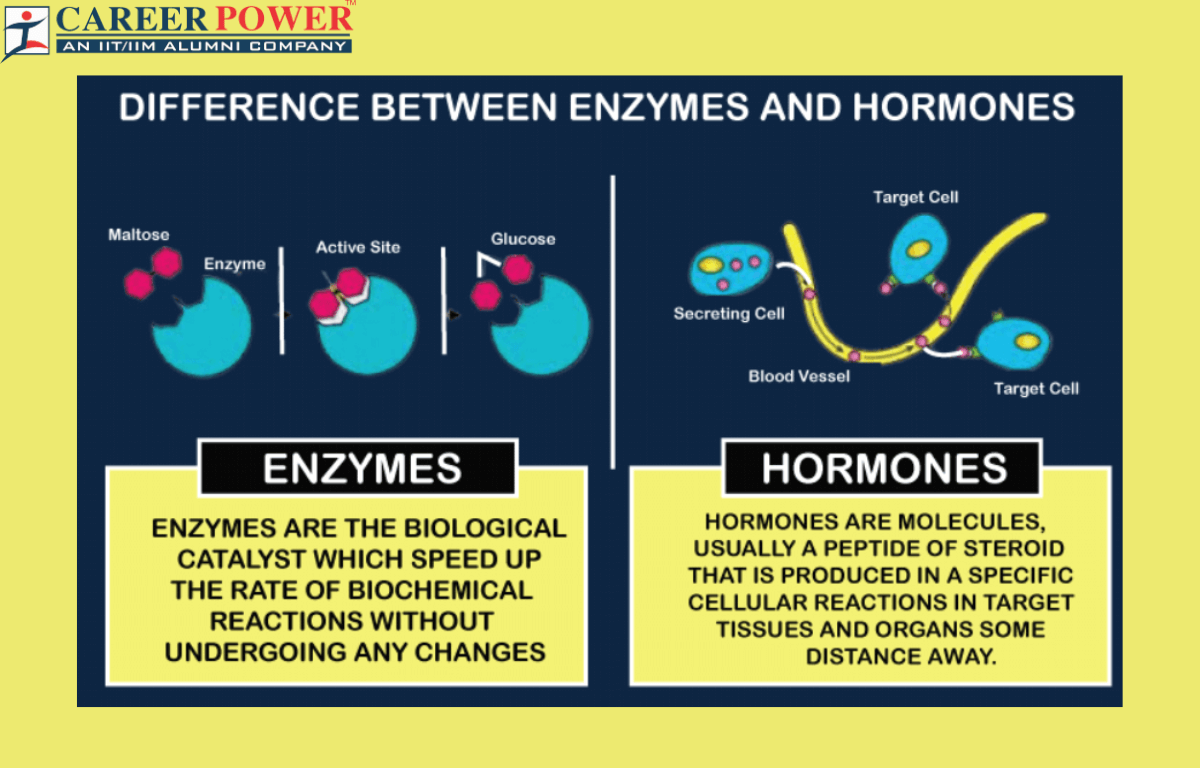

 50 Vegetables Name for Kids in English a...
50 Vegetables Name for Kids in English a...
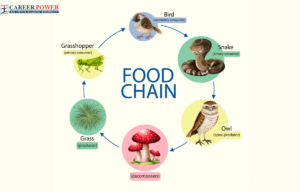 Food Chain: Definition, Types, Examples,...
Food Chain: Definition, Types, Examples,...
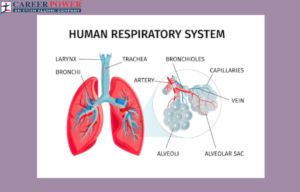 Human Respiratory System: Definition, Di...
Human Respiratory System: Definition, Di...













